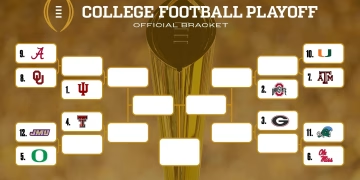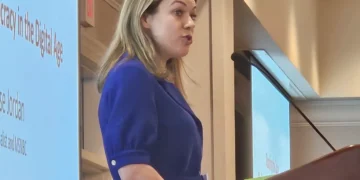State tests are, in many ways, the bane of K-12 teachers’ existence. No matter how much students enjoy the class or think they have learned, it all comes down to one evaluation: a singular, multi-hour assessment in a quiet room with minimal breaks. Even if you are proficient or advanced in a particular subject, stakes like those make for a more intimidating testing environment.
State tests are used as an indicator of growth and performance, albeit a controversial one.
Despite the many things wrong with standardized testing, it’s the system we have in place, and it is teachers’ and administrators’ duty to enforce academic honesty during these tests. So, when allegations of cheating in Mississippi reached national news, many questions arose.
Nearly 1,000 state test results were voided earlier this month due to an investigation probe finding unusual examination results. What exactly can be considered unusual? The Mississippi Department of Education defines the irregularities as either “having an extremely high level of similar responses or numerous instances of wrong-to-right answer changes” according to Mississippi Today.
I remember state testing days as the strictest days on campus in high school. On these days, there were no bathroom breaks, and absolute silence was mandated throughout the building. Lunch was pushed back well into the afternoon, and no visitors were allowed, among many other rules to ensure a secure testing site. Forget hearing a pin drop — you could hear students’ heartbeats as anxiety mounted during tests.
With that being understood, it’s shocking that teachers and administrators alike are cited as perpetrators in this investigation. In the case of Jackson Public Schools, which reported fraudulent test results from seven schools in their district, a board meeting revealed a litany of misconduct. Teachers and administrators helped students during the test by leaving hints for more difficult questions, viewing test questions early and making copies for classroom prep, changing answers post-submission and allowing students to continue testing beyond the allotted test time.
Talk about audacity and disregard. Not only did these individuals endanger their own reputations as leaders and educators, but they potentially committed misdemeanors and felonies according to Mississippi law.
Other school districts have not been as transparent during their investigations. One can reasonably assume similar antics took place in order to trigger a probe from state investigators.
Beyond that, the worst outcome of this development is that too many kids have now been set back by inconsiderate leadership. The Department of Education says that these students will have to make up for these transgressions one way or another. Some students will be forced to re-test depending on the assessment that was flagged as fraudulent.
As it stands, students already dread test prep. I can assure you no student wants to take time out of the regular school year to prepare for a test they thought they already passed once before.
Many of the elementary assessments are designed to gauge the basic understanding and literacy required to progress in any school district. By helping a third grader cheat so your numbers look better, you may have worsened the learning outcomes of a child who was at risk educationally.
It’s a shame news like this has overshadowed Mississippi’s overall improvement in academic performance. More than 500,000 state tests were taken this past school year, and the results showed Mississippi scoring above average or middle of the pack in most categories. This is a historic increase, and the educators who did the right thing to achieve it deserve a round of applause.
Moving forward, I worry about the schools that reported a high number of fraudulent tests. According to Mississippi Department of Education policy, any school that has over 10% of results invalidated due to fraud will consequently have their entire school’s letter grade voided. As a result, eight schools listed in this investigation will be gradeless for the school year.
All in all, I wish the best for the students and school districts affected, as a minor setback can lead to major issues down the road. I especially hope this doesn’t scare families away from relocating to Mississippi. We are still home to some of the brightest, most innovative young people in the country. That’s shown by our ridiculous brain-drain rate, but that’s a conversation for another day.




































